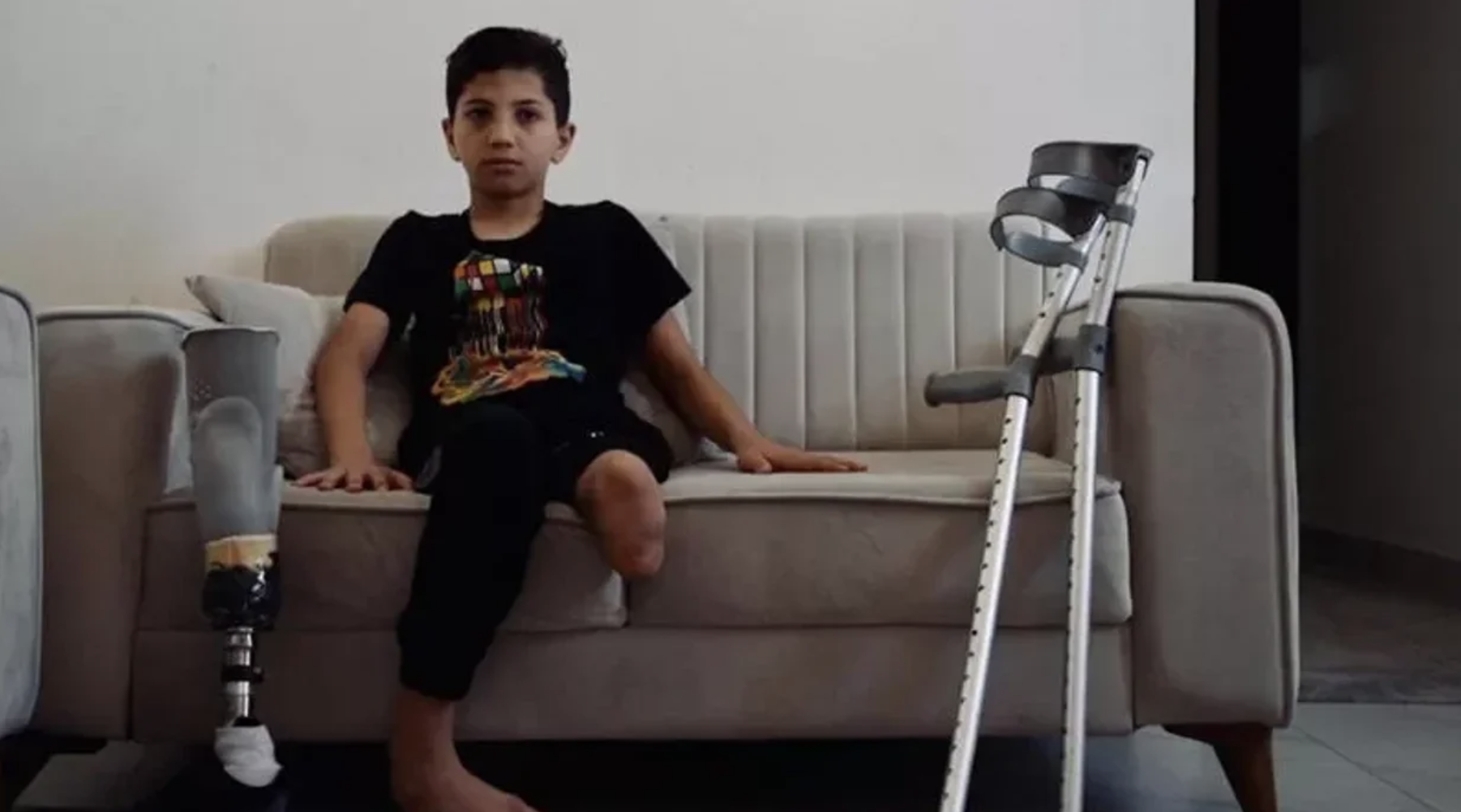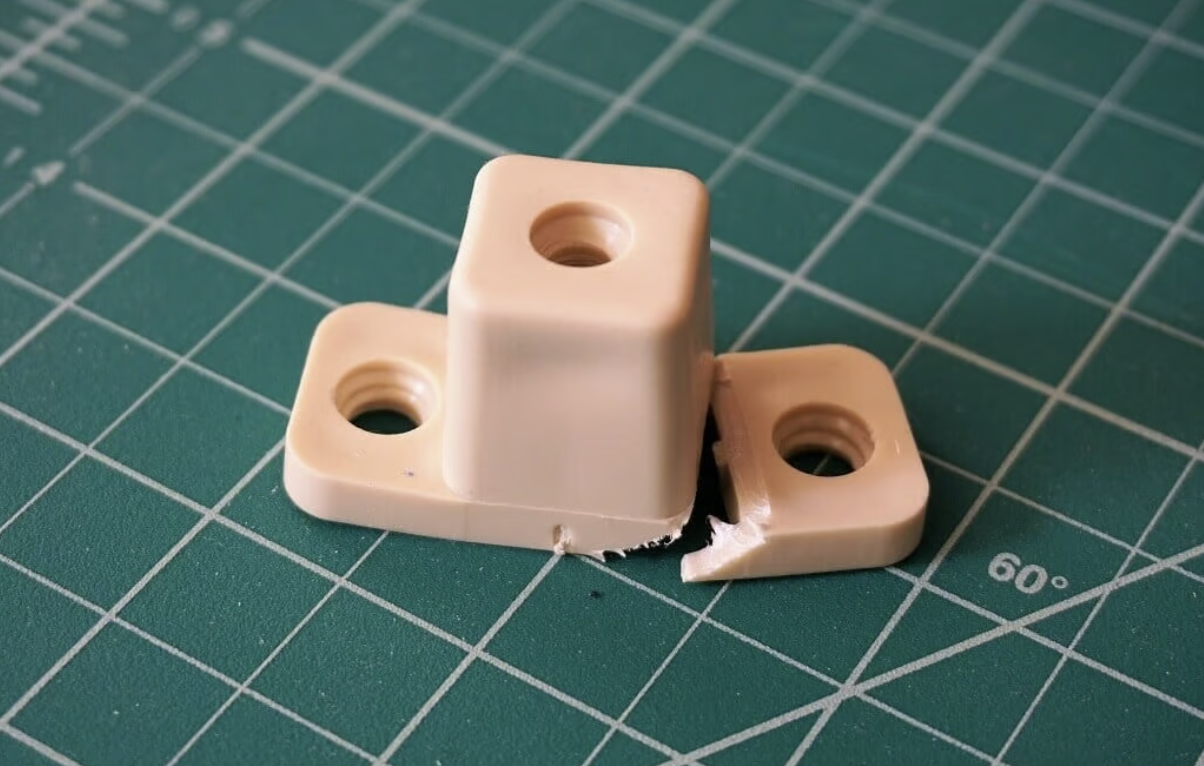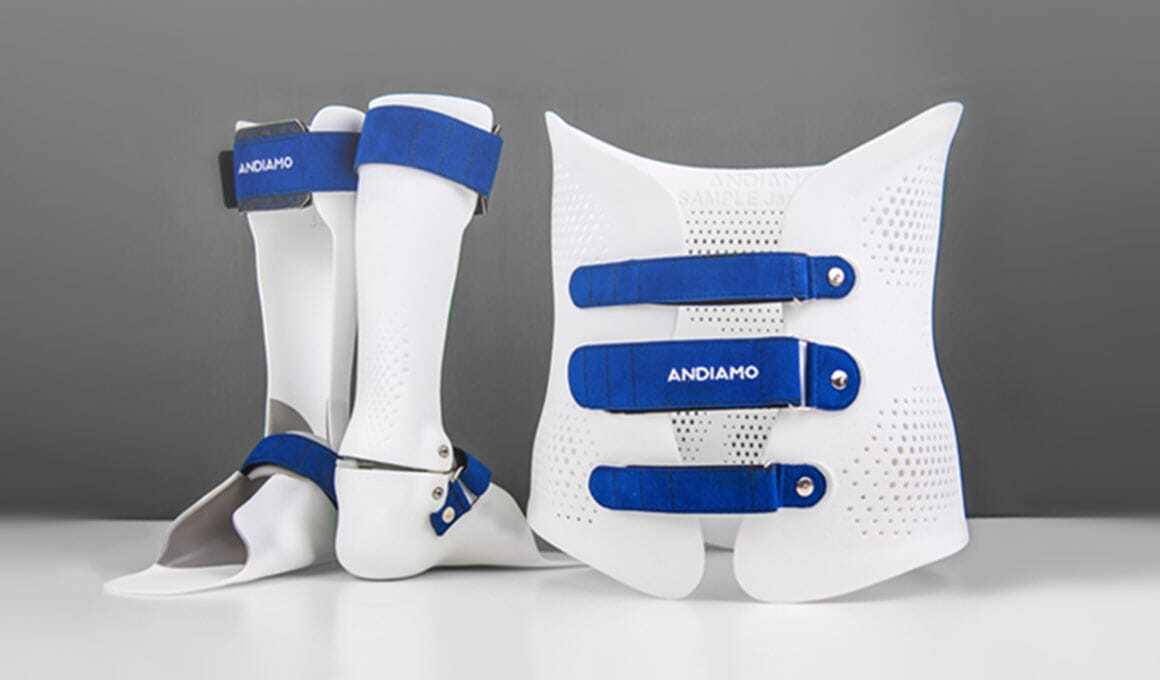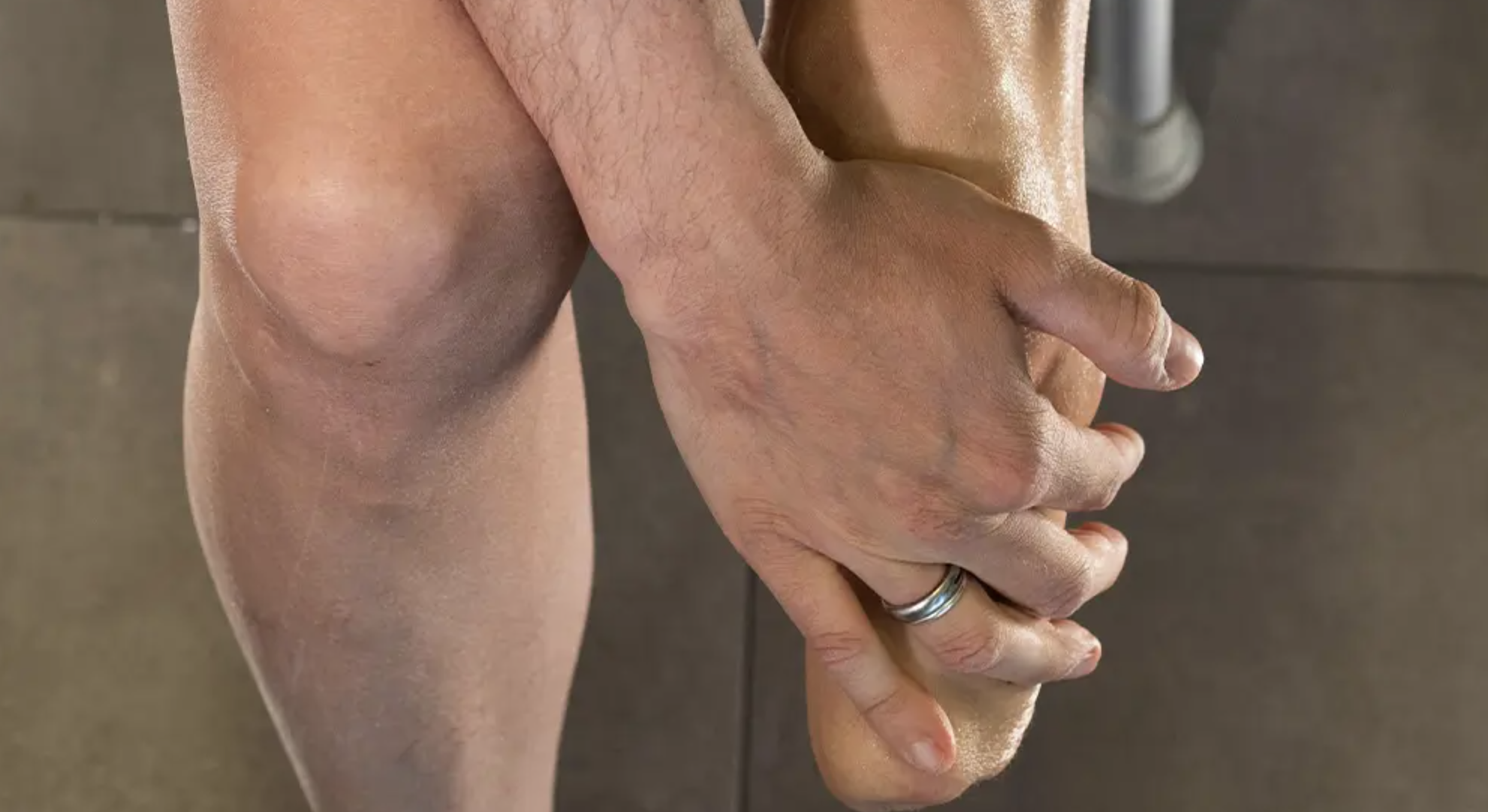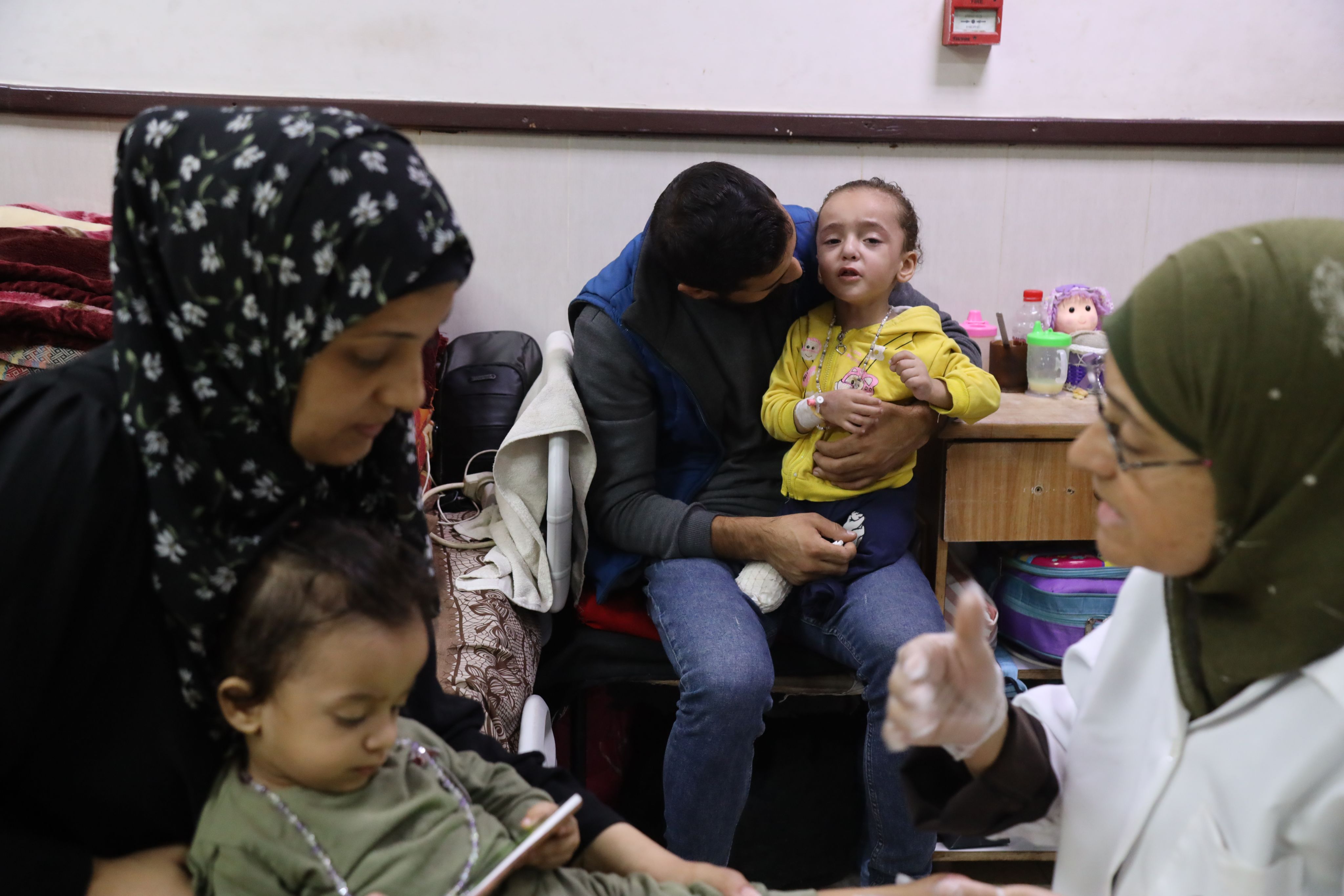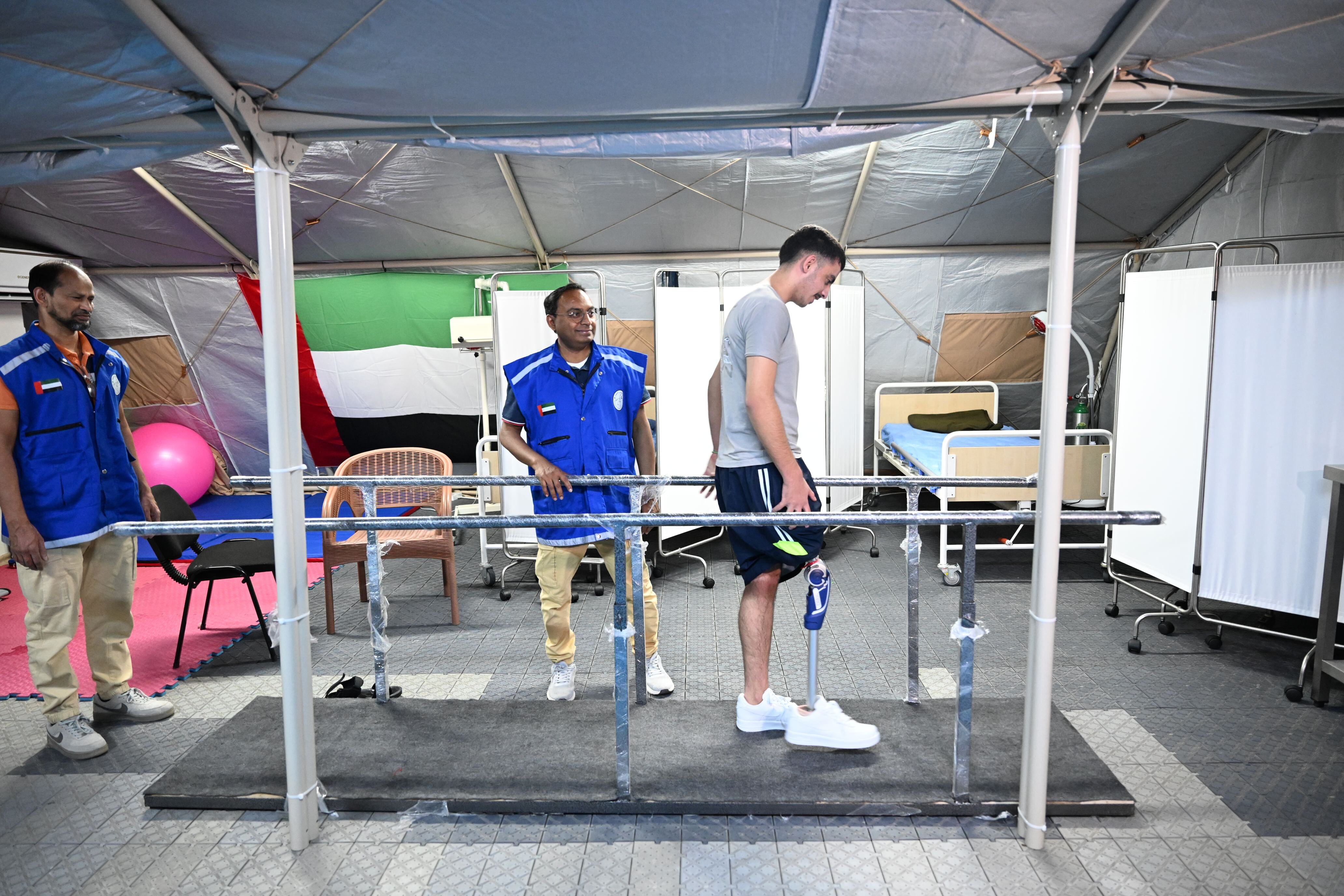Wounded by the bombs, some had to face surgeries on kitchen tables. La Stampa reporter Francesca Mannocchi met them and their parents in Doha, Qatar, where they seek refuge.
Last December, Palestinian doctor Hany Bseiso had to choose: it was either amputating the leg of his 18-year-old niece A'hed, and doing so on the kitchen table — with scissors, needle, thread, and no anesthesia — or watching her bleed to death.
At the family home in Gaza City, the fighting around them made it impossible to reach a hospital — and so Dr. Bseiso took the scissors and gauze he had in his medical bag and removed the lower part of her leg.
Meeting them today, we have proof of how much the girl suffered because another relative filmed that amputation as a testimony of what was happening. We know how much she screamed when she saw the stump of her leg on the kitchen table.
A Gaza anesthetist who worked at the al-Shifa hospital until it was stormed by Israeli troops in November told Reuters that the hospital often performed 20 amputations in a day: "There were children on the floor covered in burns, with their feet amputated, newborns that had lost their hands. I remember a small child whose right arm and right leg had been torn off. He was hemorrhaging, and we didn't even have a chest tube, we had nothing to give him to relieve the pain."
It was all avoidable
As of June, a total of at least 2,000 children in Gaza had one or both legs amputated following Israeli military action, according to the United Nations: it’s the equivalent of approximately 10 child amputees per day.
Gaza's main prosthetic limb center, a Qatari-funded hospital in Gaza City, closed in the first months of the war after an Israeli raid. In Gaza, 41% of the population is under 14 years old, and a disturbingly high number of those wounded in the war are children.
The British-Palestinian surgeon Ghassan Abu Sitta, a war medicine specialist, worked for 43 days in the Al-Shifa and Al-Ahli hospitals in Gaza before being evacuated. In November, he told The New Yorker: "“The Israelis had surrounded the blood bank, so we couldn’t do transfusions. If a limb was bleeding profusely, we had to amputate.”
Shortages of basic medical supplies are one of the main reasons for such a high number of amputations. Open wounds must be treated immediately to avoid infections and gangrene: when these spread, amputation becomes the only viable treatment. All the doctors who are treating war mutilations agree that if the wounded had been able to reach hospitals or be evacuated from the country more quickly, many amputations could have been avoided.
Where's my leg, dad?
Karim al-Shayyah is sitting on the sofa of the shelter in the Thumama complex in Doha, Qatar. He is wearing a black shoe on his right foot, the other one is on the carpet. Karim lost his left leg. “You have to put the other shoe on your prosthesis,” they told him as they brought the artificial limb to him. But he refuses to use it. And he doesn’t want to use crutches either. He’d rather hop on his remaining leg.
He shares detailed memories of the April day in which he was injured. Karim and his family fled Gaza City towards Nuseirat, where they lived at relatives’ house for 50 days before moving to Rafah, where they slept in a makeshift shelter in what used to be a kindergarten.
Karim was playing outside the house with his cousins and brother when they heard the roar of a bombing that demolished the homes nearby. Then another roar, a moment of silence after the crash, and then the screaming. He opened his eyes and saw the bodies of his neighbors, the legs and arms severed from the trunks of their children. The dust covered everything and everyone. And then, suddenly, the feeling that his body was missing a piece. He had lost a foot.
The rescuers took him to the hospital, but the leg was too compromised and they had to cut it below the knee. His father remembers that as Karim opened his eyes after the operation, he asked: "Where's my leg, dad? Where did my leg go?”
His father, consumed by grief, told him "I can't give you a new one, but I will do everything I can to take you away from here." So he put himself on the evacuation list, and in June he arrived in Doha, via Egypt. The first stop was Hamad Medical Hospital, in Qatar.
Rage and resignation
In December 2023 Emir Tamim bin Hamad launched an initiative to relocate to Qatar the most seriously injured, and to provide them with healthcare. After an agreement between Israel, Hamas, Egypt and Qatar, the wounded were allowed to leave the Palestinian territory through the city of Rafah, in the southern part of Gaza, towards Egypt, and then to Qatar on military flights.
In seven months, approximately 800 children and 900 adults were evacuated. They now live in the Thumama complex, a village originally built to accommodate the 2022 FIFA World Cup in Qatar. About 400 of them are children with limb amputations.
Karim didn't want to stay in the village, and he didn't want to talk about his fear and his pain. "I'm fine, I'm not afraid of anything and I'll be an engineer," he would declare. He said he wanted to forget, and tried to pretend the phantom limb was still there. But little by little he became aggressive. He refused to participate in group meetings with other children for weeks and had violent reactions.
His mother Sabrine says she could see the sadness in his eyes, like a dark shadow covering his face. "He didn't want to see anyone, he refused to play with other children in the complex and even with his brother." "Where is my leg?” became “When are we going back to Gaza?”
When talking about home, his mother struggles to keep her composure. "I couldn't say "never again", I can't say it. But deep inside I know that we will never go back home."
Today, Karim no longer has outbursts of rage, and doesn’t ask about home anymore. Still, he hardly ever leaves the house. Two weeks ago he learned that a dear friend of his, also displaced in Rafah, had died. He was 10 years old.
Karim still wants to be an engineer but, before it all happened, it was to emulate his uncle. Now, he says he wants to become an engineer and rebuild Gaza.
The prosthetic leg is always there, close to him, unused. "Before I was injured my life was good. I played with my cousin and my brother. We played football, climbed trees, and collected wood to make bread. I was happy."
Steering with his feet
Yusif Ajjour can similarly recall in vivid detail the moment that changed his life — and the life of his son. He was a few hundred meters away from home in Gaza City when he heard the crash. He saw smoke rising in the direction of his home and started running. As he walked down the street he found the bodies of his neighbors, and another acquaintance who, going towards him, screamed: "Yusif, run, run, your son lost his hands, your wife got hit."
Ajjour dragged his wife out of the rubble and entrusted her to the survivors, then took his son Mahmoud into his arms, placed him on a donkey and headed towards a small health center near his home.
It was the beginning of December. There were already too many wounded and too little medical equipment. Mahmoud's father knelt down. He begged the doctors to help him, and the doctors amputated both arms with very little anesthesia.
Mahmoud is nine years old. He remembers being at home with his mother when he suddenly found himself lying on the ground. He remembers the voice of his mother praying to God to forgive her sins, the sound of another missile hitting the adjacent house and his mother's body protecting him from shrapnel and debris. Then the face of his father, holding him in his arms. Then the unbearable pain. There was no anesthesia, no morphine, no painkillers.
Today he lives on the fourth floor of building 218/b in the Doha complex that houses Palestinian refugees. He never gives in to anger or suffering. He learned to play video games using his feet and he got used to being fed by others, his sister, and her mother. He says he feels no shame for the two asymmetrical stumps he has instead of arms.
Listening to her son, Mahmoud's mother lifting his shirt to change him, and bites her lip to try to keep from crying.
Mahmoud attends the morning shift in the city's Palestinian school, and then in the afternoon goes down to the playground: there, he plays with Amir who only has one leg, Ahmed who is in a wheelchair with paralyzed legs, Sanad who has only one finger.
Mahmoud's father requested if it was possible to have a custom-made bicycle that he could steer with his feet. The boy has learned to ride it, zipping around at the speed of sound, letting out bursts of laughter. Mahmoud wants to be a pilot, he says. “Peace planes, though”.
